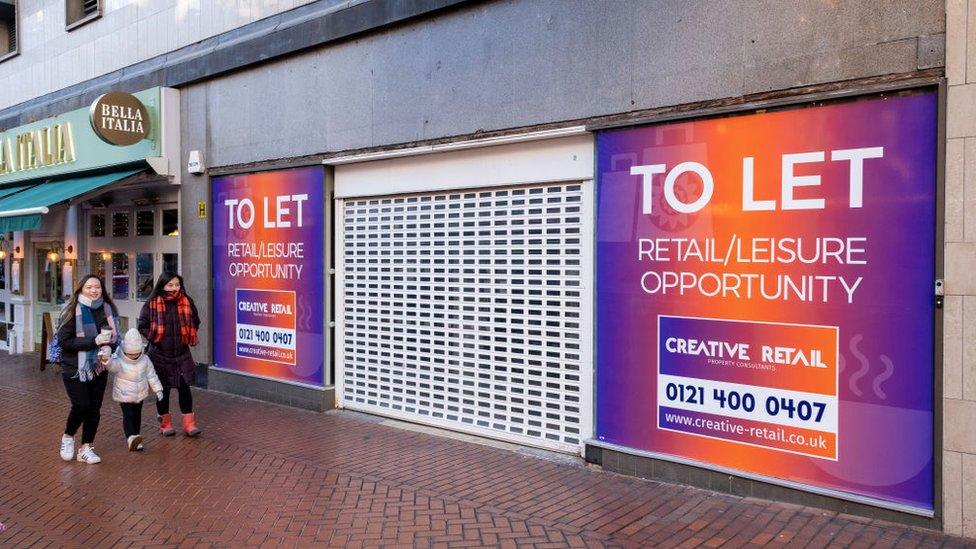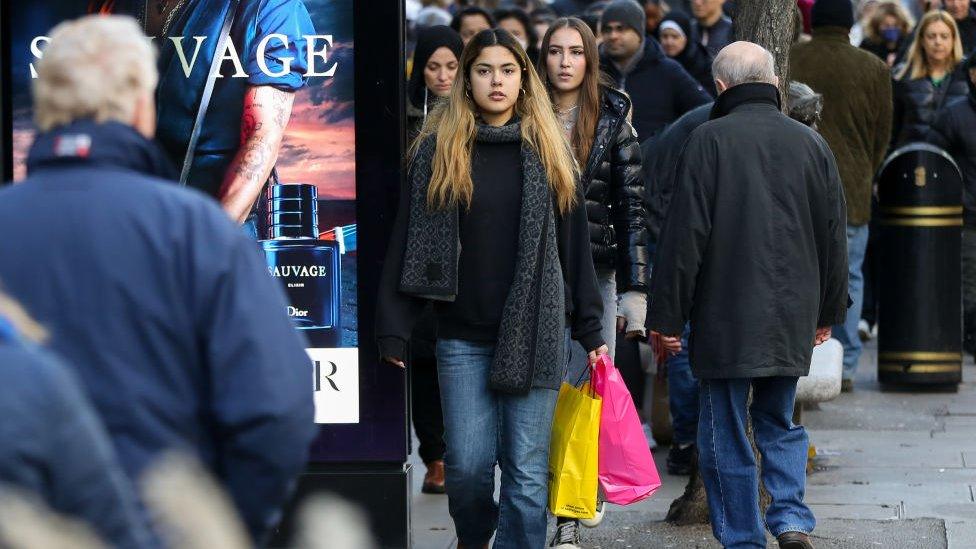Retail: Last year saw a big jump in the number of shops closing
- Published
- comments

There was a sharp rise in the number of shops closing on the UK's High Streets, shopping parades, and out-of-town shopping parks in 2022, according to the Centre for Retail Research (CRR).
More than 17,000 sites shut up shop - the highest number for five years.
Total closures were nearly 50% higher than in 2021, the researchers said.
The number of retail jobs lost, in stores and online, also jumped as businesses closed or cut costs.
More than 150,000 posts were closed, up 43% compared to the previous year.
At the height of the pandemic some businesses were protected through government support and the furlough scheme, which helped to pay wages when shops could not open.
However, in 2022 as the economy continued to reopen, the retail sector faced a barrage of challenges.
Prices rose sharply and shoppers reined in their spending. Costs for retailers also rose, with steep increases in energy and wage bills in particular.
The CRR, an independent research body which provides analysis of retail sector trends, said shops were closing at a rate of 47 per day in 2022. Over the course of the year, large retail chains closed 6,055 shops while 11,090 shops were closed by independents.
However, only around a third of closures were due to insolvencies, according to the CRR.
The number of stores closing because a parent chain with more than 10 stores went under, actually fell, the CRR said. Closures in that category were 56% lower in 2022 than in 2021, but included some high profile names, including M&Co, Joules, McColls, Sofa Workshop and TM Lewin.
Nearly a third of the closures were branches of chains which were closing some of their sites to save money and rationalise the business. Some, such as Marks and Spencer, simultaneously opened new branches in different locations.
More than a third of closures were independent shops which decided to wind up their business, also classed as rationalisation.
"Rather than company failure, rationalisation now seems to be the main driver for closures as retailers continue to reduce their cost base at pace," said CRR director Joshua Bamfield.
He expected the trend to continue in 2023, he said, although "a few big hitters may well fail too".
From April, retailers will receive temporary support from the government with business rates, the tax charged according to the value of the firm's properties. That will be in the form of a 75% discount on business rates up to a limit of £110,000 per business.
Shops standing vacant are exempt from rates altogether for three months. After that, however, they are subject to the full rate charge, and are not eligible for the 75% discount.
Robert Hayton, UK president at real estate advisory group Altus, called for the approach to empty properties to be reviewed.
"Rate-free periods need to be urgently extended to reflect the time that it actually takes to re-let vacant properties." he said.
Related topics
- Published30 December 2022

- Published1 January 2023
